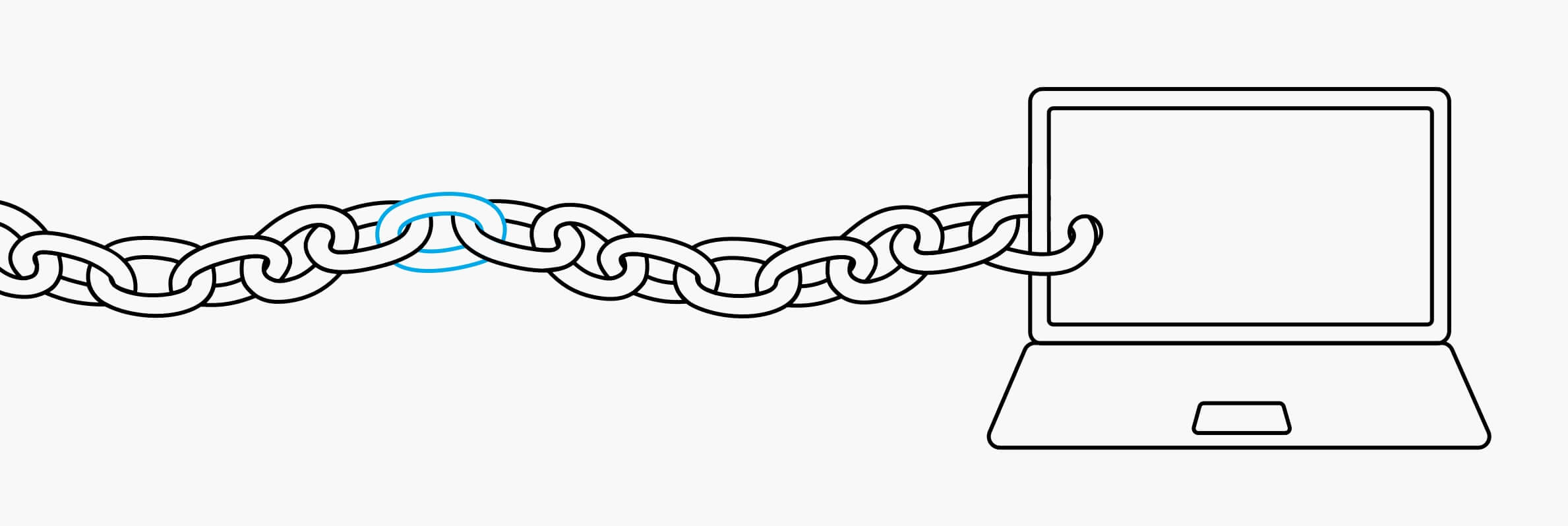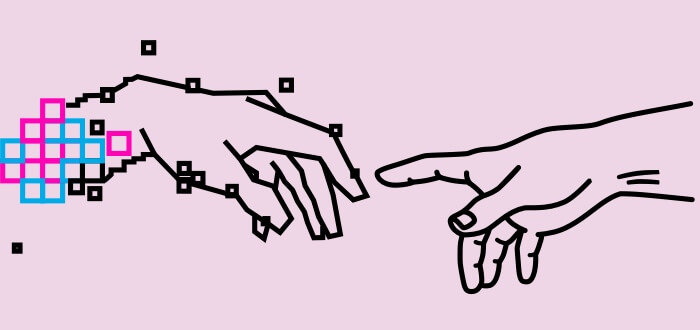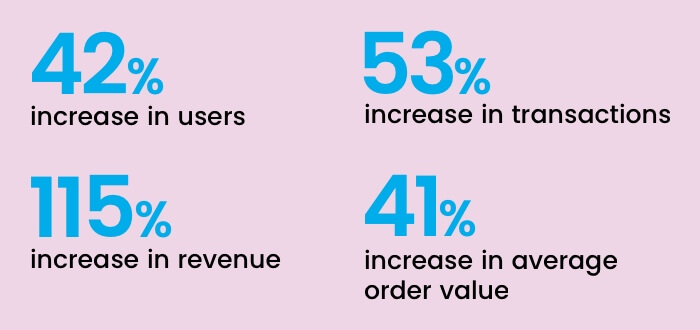What is blockchain?
In brief, blockchain allows digital information to be communicated between a decentralised, peer-to-peer (P2P) network, forming a new type of internet.
Blockchain works like a digital ledger or spreadsheet that can be accessed by everyone (think Google Docs) but the previous input cannot be edited without that edit showing up in the audit trail.
For an overview, This inforgraphic is a great place to start. It describes blockchain as a ‘spreadsheet in the sky’ made up of blocks. Everybody involved (via the peer-to-peer network) stores information in cryptographically secured data pieces called blocks. Each block stores information about the previous block, thus they are “chained” together with cryptology, hence the name Blockchain.
You don’t need to know exactly how blockchain works in order to be able to use it. However, a high-level understanding can help you stay ahead of the competition.
There are a number of key features that make the network exciting for eCommerce brands:
- Decentralised. Blockchain operates over a P2P network. Data is never held in a single location, which makes it more reliable. Additionally, nobody owns or is in charge of the blockchain, meaning it is free of influence from governments or large corporations.
- Immutable. The transactions are append-only; once data is recorded, it cannot be changed without that change being visible in the audit trail.
- Near real-time. Stakeholders can work collaboratively in real-time over a single, trusted ledger.
These features open a wealth of new opportunities for brands with security, transparency and greater control at the forefront of blockchain’s potential applications.
Blockchain beyond Bitcoin
Blockchain’s security and separation from centralised organisations and governments has garnered attention across a range of industries and sectors. Google Trends shows how interest has increased exponentially over the past year:
The advantages and opportunities for marketers, in particular, are exciting. Blockchain could help improve ad verification and tackle fraud, increase security of data and create secure exchanges of content for marketing purposes.
“The opportunities Blockchain proposes for marketers are absolutely astronomical, but it is often marred by how difficult the technology is to get your head around,” Paul Armstrong, author of Disruptive Technologies: Understand, Evaluate, Respond, told Marketing Weekly.
So what potential does Blockchain hold for your eCommerce brand?
Building trust and increasing transparency
One of the primary benefits of blockchain is its potential for securely storing large volumes of anonymous customer data.
A data breach could lead to a disaster for a brand’s reputation, so it’s vital that for businesses to implement a secure network. Blockchain is another way of creating transparency — while it can't prevent data breaches, it would make it clear what exactly was seen or leaked.
Because of blockchains's decentralised structure, data is not stored in one single location, this gives greater resilience to the information stored, along with being encrypted during processing - preventing unauthorised attempts to modify or snoop on the data being sent. Once received the data is decrypted and written to the ledger forever - To change anything on there you would need the collusion and agreement of the whole network due to it's P2P structure.
To date, there is yet to be a reported breach of blockchain. The transparency of the network also means that it can be more easily audited, therefore, breaches can be detected at an earlier stage before they become a large scale incident.
Greater control over display advertising
A misplaced digital advert could be extremely damaging for an eCommerce brand. As the distribution of display advertising become more programmatic and automated, there is the possibility that an advert could appear in an undesirable location.
There are two ways that blockchain could help marketers here. Firstly, it can help them identify when an ad is placed somewhere it shouldn’t be. Because Blockchain works within a set of core rules, that cannot be changed, it’s easier to identify problem websites and if necessary, pull an ad from that site.
Additionally, it can help cut out the middleman. If blockchain could guarantee the validity of clicks between advertisers and web owners, marketers could approach publishers directly. This would give them greater control over the process.
Content exchanges using P2P blockchain tech
One exciting use of Blockchain technology is the opportunity for content exchanges using P2P Blockchain technology. Take for example, ARTToken, who are bringing together two revolutionary technologies; blockchain and AR/VR content. Their website states:
“We believe the AR/VR revolution will be driven by content creators. That’s why we are introducing the first platform that leverages blockchain infrastructure to create, rent and sell 3D content. This approach ensures decentralized and trustless copyright storage and content exchange within the AR/VR ecosystem.
A utility token - ARToken (AR) - will be issued as a digital payment vehicle that facilitates AR/VR/3D content exchange among the ecosystem participants from all over the globe.”
There is another benefit here specifically for eCommerce brands. Blockchain can help to reduce a huge drain on their resources - customer returns.
Hosting 3D images that better represent the items that they sell could reduce the cost as shoppers get a better understanding of what they’re buying. However, this can be expensive, especially for smaller brands.
The future of blockchain
Nicknamed web 3.0 for its revolutionary impact on the way we use the internet, the opportunities for blockchain are seemingly endless.
We’ve already seen the emergence of cryptocurrencies like Bitcoin and Ethereum. In the future, it could change the way all payments are made, information is verified and data is stored. These three areas alone could revolutionise economies, change society and disrupt nearly every industry.
However, mass consumer understanding of the technology is probably at least 5 years away. Yet some businesses will be looking to adopt the technology in the next 2 to 4 years.
The opportunities blockchain offers are certainly exciting, however we are starting with a blank slate. We have no precedents to work from or to analyse. Implementation is likely to start with small-scale enterprises looking for ways to get ahead of the competition and will spread with time.
So, keep an eye on blockchain developments over the next few years — early adoption could give your eCommerce brand a competitive edge.


